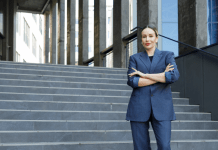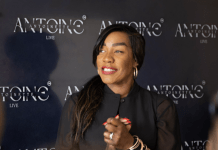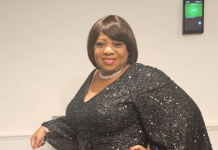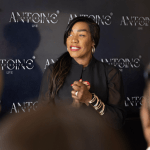Since 2018, Amanda Obidike has found herself intrigued in Data Science and Business Intelligence where she received training from IBM and today, she uses the opportunity to train undergraduates as a consultant. She consults for women who own their business to guide them for sustainable expansion.
STEMi Makers of Africa, with Amanda as its founder, takes non-governmental action against the lack of educators in STEM in Africa. Through hands-on experience in class, students quickly identify their particular talents and aptitude with STEM fields and Amanda’s STEMi Makers of Africa tailor the programmes. This institutes upskilling, internships & mentoring, future-focused skills and more for these underprivileged, non-privileged apprentices.
To empower a community, Amanda assures you can start by empowering women. She started her journey on life-education, networking, and rebuff to do just this.
Although she has received decorated accolades, she persists in achieving more still. This attitude has dramatically increased her altitude as the common idiom goes and she presents a shining example to young women as a role model and active agent in their lives.
Read more about Amanda and her vision of gender-responsivity for women in scholarly circles of all ages.
When you empower a woman, you empower a community
—Amanda Obidike
[ez-toc]
With a dazzling background of accomplishment, what was your favorite year of the last 11 years’ experience as a Data Scientist?
I took keen interest in Data Science and Business Intelligence in the year 2018 when IBM trained me. Data Science is an amazing scope in analytics where we take big data sets and apply algorithms to organize and model them to the point where the data can be used for forward-looking, predictive reports.
It relies on algorithms, simulations, and quantitative analysis to determine relationships between data that aren’t obvious on the surface.
It’s been a beautiful experience because I use the opportunity to serve as a knowledge panel in training undergraduates as they explore data science careers.
I believe the young generation needs to prepare and position themselves well for future-focused skills and proficiencies as they compete on a global level. Another favorite part of this opportunity is consulting for women-owned businesses and helping them determine profitability, new markets, what their competitors are doing and making sustainable decisions to act upon as they scale their businesses.

Can you tell us more about STEMi Makers Africa? What was the purpose behind founding the company and what is the STEMi Makers Africa’s why—the one thing that drives the company employees in common?
STEMi Makers of Africa is an acronym for Science, Technology, Engineering, Mathematics and Innovation and it’s a non-governmental organisation. It began after my training in Business Intelligence by IBM.
I wanted to bridge that gap and the leaky unemployment pipeline by training educators in STEM, providing hands-on learning experience in the classroom where students can identify their skills, and find empowerment as they transition from education to employment.
STEMi Makers of Africa also addresses the under-representation of young women and girls in STEM. According to recent data from UNESCO, less than 30% of researchers employed in research and development globally are women.
Studies have also found that women in STEM fields publish less, receive lower pay for their research in science and do not progress as far as men in their careers.
Moreover, women and girls’ enrolment in university STEM courses is much lower than their male counterparts. As a result of these factors, many girls are discouraged from participating in sciences.
Our common goal as a team is to close the pervasive gender digital divide through tailored programs and interventions that promote upskilling, internships, mentorship, work-preparedness, bootcamps for educators and undergraduates, and more.
What was your personal journey to the top? How did you become the Executive Director of such an inspiring company?
At the beginning, I did not have technical know-how or professional experience in Technology. The journey has been a pathway of learning and a process of research, collaboration and even—rejection. It took a lot of commitment and perseverance to be where I am today.
Since I founded STEMi Makers of Africa, my value for upskilling and empowering communities has pivoted the organization to boundless opportunities and partnerships with esteemed organizations who also believe that the future growth of any society depends on aligned systems and policies in technology, research, and innovation.
Can you tell us about Chatham House? What are the benefits and advantages?
Chatham House is an institution that develops future leaders from the pool of youth who express keen interests in policy-making and international developments.
Part of my long-term goal includes how we can design favorable policies in STEM Education and Educator reforms in the classroom.
I love that Chatham offers the platform to develop research projects around education, society, and technology: integrating practical leadership skills and growing proficiency in understanding International Affairs.
Emerging 40 under 40 in the Economic Development Award, and receiving several other accolades, qualifies you for deserved attention. What has the effect of recognition had on your growth as an individual?
Accolades are symbolic of appreciation. The expression is, “I see you; I hear you and we celebrate you.” I am so grateful for these milestones, but there is more to these awards.
For me, they represent a challenge to do more, to do better, to expand my impact, reach out and to inspire more young women and girls.
It’s also an expectation curve—like they say, “with great power comes great responsibility”.
I recognize these accolades as winning ways to put in more work, solidify beneficiary bases and design more sustainable interventions that promote the organizational values and missions. My measure of choice to determine growth as an individual is the number of young women that have served under my tutelage, or that I have mentored to succeed in their careers on a yearly basis.
I believe success is the ability to impact others and not solely on your accomplishments.
How would you empower women forever, if you could change only one thing in today’s global society?
When you empower a woman, you empower a community.
This means that women constitute a major development in a society. Women nurture. Women grow. Women inspire; even more still, women leave indelible marks and are role models.
If there is something I would love to have an influence on, it would be a gender-responsive design approaching policies around technology and innovation towards equitable quality education, digital literacy, and a conducive environment for women to excel and thrive in a rapidly changing world.
I believe when we mainstream gender in digital policies, it can remove barriers to equal access for all women and girls. This includes those living in poverty, within rural, maritime, or remote areas, with disabilities, while including indigenous women & girls, migrants, and older women.
Have you ever felt overwhelmed and how do you manage burnout?
This is very true. There are times I feel overwhelmed coupled with work, studies, and other commitments, on a daily basis. I manage time and my mental health through journaling.
I have therein found a way to stay accountable, be more productive, reduce mental stress and prioritize my activities.
Journaling remains a proven tool to reflect on how much time I spend on tasks, so I can make any necessary changes in the future.
What is the greatest fear in business that you overcame and how did you achieve this?
One of my greatest fears was rejection.
There are events where prospective investors or partners declined proposals and our offerings, especially when it seems as though we had built mutual or symbiotic relationships.
So later on, I thought maybe if I pitched more, or was forceful and persuasive: perhaps I could stand a chance, yet sometimes, it did seem to work that way.
I began to have honest conversations with myself.
The more I thought, the more authentic I developed in becoming true to myself. I began to love myself more, and to love what I do. I love every lesson learned because rejection will happen, but when it does, how do you handle it? What do you do? What did you learn?
This built my confidence within the NGO space. Nothing surprises me anymore.
I am also thankful that years of diligence have also opened doors I didn’t even knock on.
This has also strengthened my leadership style. I am not all perfect; I value every process in this journey.
STEMi Makers Africa | Africa by us, for us and of us
















